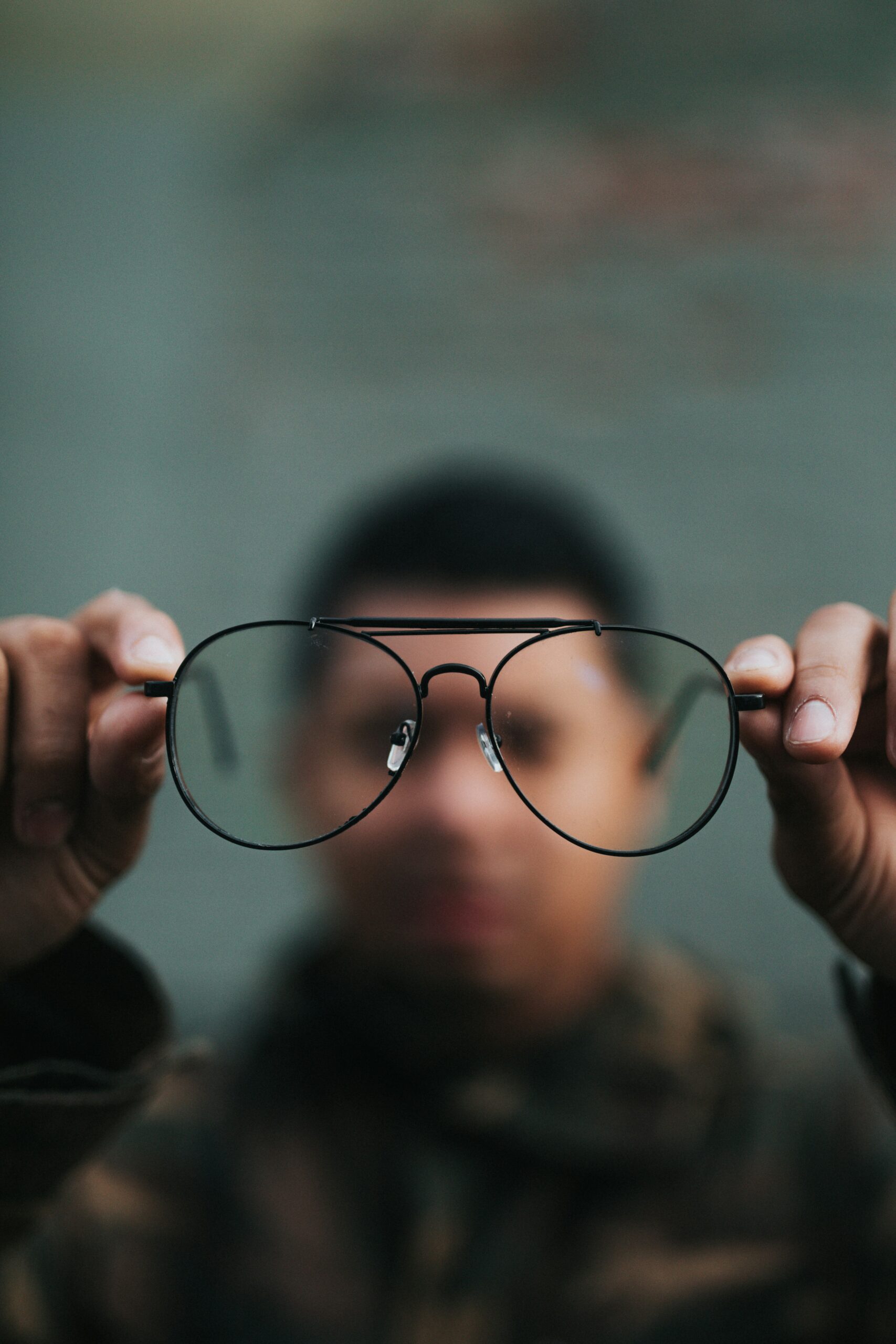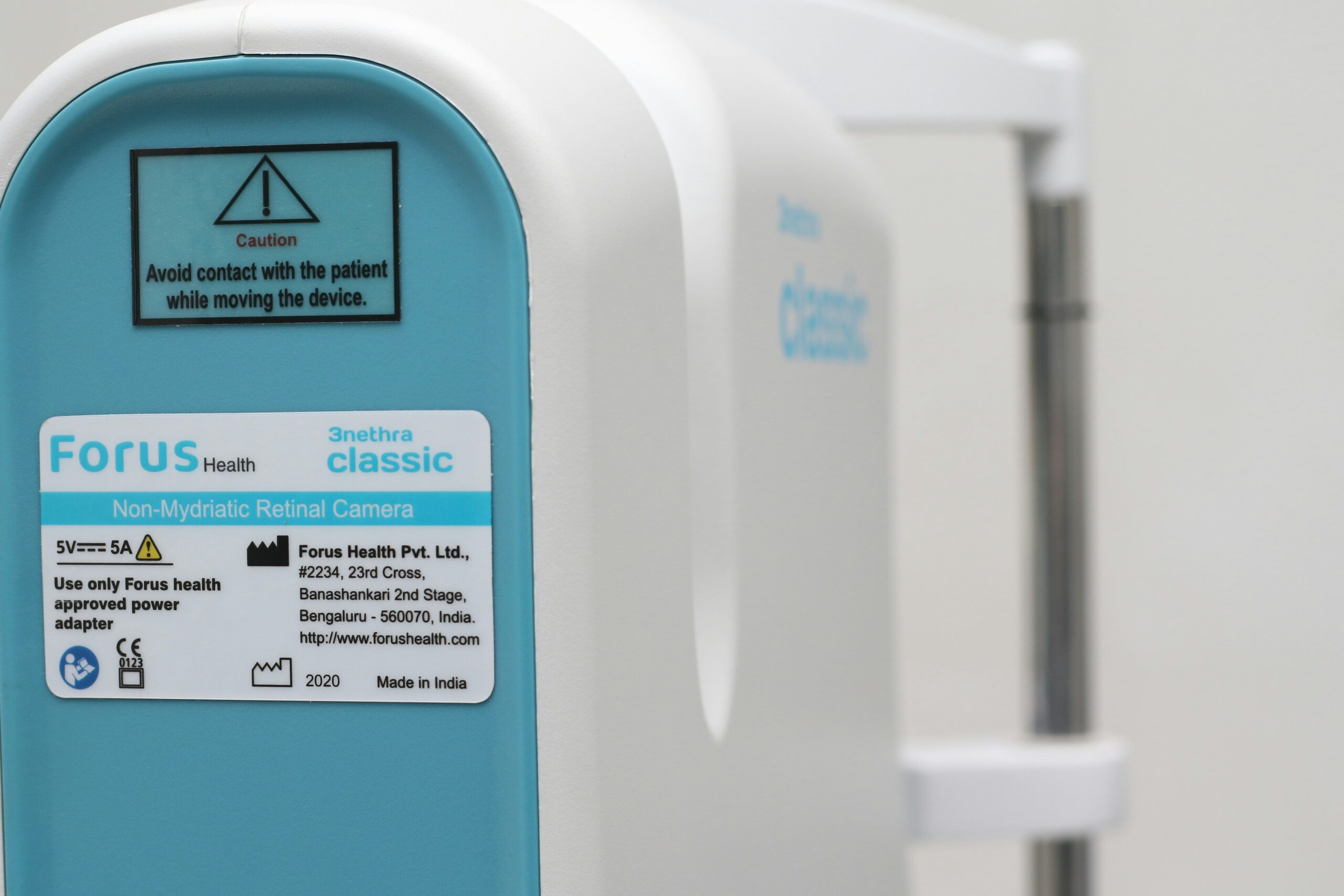Imagine looking through a monocular lens with just one eye – have you ever wondered how this affects your depth perception? In this article, we will explore the fascinating world of monocular vision, and delve into whether your ability to perceive depth is compromised when using a monocular with just one eye. So, get ready to discover the science behind depth perception and unravel the mystery of how our eyes perceive the world around us.
Understanding Depth Perception
Definition of depth perception
Depth perception refers to the ability of our visual system to perceive the relative distance of objects in three-dimensional space. It allows us to accurately judge the spatial relationships between objects and ourselves, which is crucial for tasks such as reaching for objects, navigating through our surroundings, and driving.
How it works in human vision
Depth perception in human vision is primarily achieved through a combination of cues received by our two eyes, known as binocular vision. Each eye provides a slightly different view of the world due to their separate positions, and our brain combines these two images to create a sense of depth. This process, called stereopsis, relies on visual cues such as disparity, convergence, and motion parallax.
The role of the brain in depth perception
While our eyes play a crucial role in gathering visual information, it is our brain that processes and makes sense of this information to create the perception of depth. The brain takes into account various visual cues received from both eyes and integrates them to form a coherent and accurate representation of our surroundings. This complex process involves neural pathways and areas in the brain, such as the occipital lobe and the parietal lobe, that are responsible for visual processing and spatial awareness.
The Concept of Monocular Vision
Explanation of monocular vision
Monocular vision refers to the ability to perceive depth and judge distances using only one eye. This can occur when an individual has vision impairment in one eye, when one eye is covered or closed, or when using an optical device such as a monocular. In monocular vision, the brain relies on other visual cues to estimate depth, including size, perspective, shading, and motion parallax.
Comparison between monocular and binocular vision
The main difference between monocular and binocular vision lies in the availability and quality of depth perception. While binocular vision provides a more accurate and precise sense of depth due to the combination of visual cues from both eyes, monocular vision relies on alternative cues and may have reduced depth perception capabilities. Binocular vision allows for better depth judgment, especially in tasks that require precise spatial awareness, such as catching or grasping objects with both hands simultaneously.
Usage of one eye in monocular vision
In monocular vision, one eye becomes the primary source of visual information for depth perception. This eye plays a crucial role in capturing the visual cues necessary for estimating distances and perceiving depth. The brain must rely on the visual input from this single eye and interpret the available cues to create a sense of depth. While monocular vision can be functional in many daily activities, it may present challenges in specific tasks that require accurate depth perception.

Study of Monoculars
Working principle of a monocular
A monocular is a handheld optical device that allows individuals with vision impairment in one eye or those seeking enhanced visual capabilities to view distant objects. It functions similarly to a small telescope or a single eyepiece of a binocular. The monocular magnifies the image of the object, making it larger and easier to see. By using one eye to view through the monocular, individuals can enhance their visual perception and gather more detailed information about the environment.
Attributes of a good monocular
A good monocular should possess certain attributes to ensure optimal performance and usability. Firstly, the optical quality of the monocular is crucial, as it determines the clarity and sharpness of the viewed image. Additionally, factors such as magnification power, field of view, and ease of focus adjustment are important considerations. The size, weight, and ergonomic design of the monocular should also be taken into account to ensure comfortable handling and portability.
Benefits and challenges of using a monocular
Using a monocular can offer several benefits to individuals with vision impairment or those engaging in activities that require enhanced visual acuity. It can provide a clear and magnified view of objects in the distance, allowing for better recognition of details and increased awareness of the surroundings. Moreover, monoculars are compact and portable, making them convenient to carry and use in various settings. However, using a monocular with only one eye may present challenges in tasks that rely heavily on binocular depth perception, such as precise depth judgments or perceiving objects that are close to each other.
Depth Perception Vs Monocular Vision
Contrasting depth perception in monocular and binocular vision
The contrast between depth perception in monocular and binocular vision lies in the availability and reliability of visual cues. Binocular vision benefits from the simultaneous input of two slightly different images, allowing for precise depth judgments through the process of stereopsis. In contrast, monocular vision must rely on other visual cues, such as size, perspective, and motion parallax, to gauge depth. While monocular vision can provide a sense of depth, it may not be as accurate or reliable as binocular depth perception in certain situations.
Research studies on depth perception using a monocular
Research studies have examined the depth perception capabilities of individuals using monoculars. These studies have shown that monocular vision through a monocular device can still provide useful depth cues, particularly in outdoor settings and tasks such as estimating distances to objects or judging the relative positions of objects. However, the accuracy and reliability of monocular depth perception may vary among individuals and can be influenced by factors such as the individual’s visual acuity, experience, and adaptation to monocular vision.
Effects of monocular vision on depth perception
Monocular vision, whether due to vision impairment or the intentional use of a monocular device, can have implications for depth perception. Individuals with monocular vision may experience challenges in activities that require precise depth judgments, such as driving, playing sports, or performing tasks that involve catching or grasping objects. These individuals may need to rely more heavily on other visual cues and develop compensatory strategies to overcome the limitations of monocular vision in these contexts.

Impacts on Everyday Tasks
Influence of monocular vision on daily activities
Monocular vision can influence various daily activities in different ways. Tasks that primarily rely on accurate depth perception, such as pouring liquid into a glass, threading a needle, or judging the distance of oncoming traffic while crossing the road, may become more challenging for individuals with monocular vision. However, monocular vision may have less impact on certain activities that rely more on other visual cues, such as reading, watching television, or engaging in stationary hobbies.
Practical examples of tasks influenced by depth perception
To understand the impact of depth perception on everyday tasks, consider activities such as parking a car, playing sports that involve catching or hitting moving objects, climbing stairs, or reaching for objects on a shelf. These tasks require precise depth perception to ensure accurate judgments of distance, height, and spatial relationships. Without the benefit of binocular vision, individuals with monocular vision may face difficulties or delays in performing these tasks effectively.
How depth perception issues can impact safety in everyday tasks
A diminished sense of depth perception can have safety implications in everyday tasks. In situations that require accurate depth judgments, such as driving, operating machinery, or crossing busy streets, individuals with monocular vision may face increased risks. The ability to accurately judge distances, speeds, and positions of objects is crucial for making timely and appropriate decisions. Therefore, it is important for individuals with monocular vision to be aware of these limitations and take necessary precautions to ensure their safety and the safety of others.
Techniques to Improve Depth Perception in Monocular Vision
Available techniques to enhance depth perception
While monocular vision poses challenges for depth perception, there are techniques that can help individuals enhance their depth perception abilities. One such technique is practicing visual scanning, which involves deliberately moving the eyes to gather information from different angles and distances. This can help improve depth estimation by utilizing alternative visual cues. Additionally, using depth-cueing devices, which provide depth-related visual cues, can aid in enhancing depth perception in monocular vision.
Role of practice in depth perception improvement
Like any skill, improving depth perception in monocular vision requires practice and deliberate effort. By repeatedly engaging in tasks that challenge depth perception, individuals can develop better strategies and adapt to the limitations of monocular vision. Gradually, through practice, individuals can learn to rely on alternative cues and familiarize themselves with the visual context of their surroundings. This practice can lead to improved depth perception, increased accuracy in judging distances, and better overall spatial awareness.
Effective aids and tools for depth perception improvement
Several aids and tools are available to assist individuals with monocular vision in improving their depth perception. These include electronic vision devices, such as head-mounted displays or smart glasses, which enhance visual acuity and provide augmented depth-related cues. Additionally, certain optical filters or lenses can manipulate the visual input to create better depth perception for individuals with specific visual impairments. These aids and tools can play a significant role in supporting individuals with monocular vision and allowing them to perform tasks more effectively.

Monoculars and Vision Impairment
Benefits of monoculars for people with vision impairment
Monoculars can provide significant benefits for individuals with vision impairment in one eye. By using a monocular, these individuals can compensate for reduced visual acuity in one eye and gain a clearer and magnified view of objects in the distance. This enhanced visual perception can improve their overall mobility, facilitate object recognition, and increase safety in various situations. Monoculars also offer portability and convenience, allowing individuals to carry them and use as needed.
Challenges faced by vision-impaired individuals in using a monocular
While monoculars offer advantages for individuals with vision impairment, several challenges may arise when using such devices. Proper alignment of the monocular with the eye is crucial to obtain clear and accurate views, which can be difficult for individuals with vision impairments. Additionally, adapting to the monocular’s field of view, depth perception differences, and potential eye fatigue can require time and practice. Addressing these challenges may require support from vision professionals and the implementation of compensatory strategies.
Personal accounts of vision-impaired individuals using monoculars
Individuals with vision impairment who use monoculars often share personal accounts of the positive impact these devices have on their daily lives. They emphasize the improved ability to recognize distant details, read signs, or identify objects at a distance. Many individuals express gratitude for the increased sense of independence and confidence they gain from using a monocular, as it allows them to navigate their surroundings more effectively and participate in activities they previously found challenging.
Professional Opinions on Monoculars and Depth Perception
Insights from vision therapists and scientists
Vision therapists and scientists offer valuable insights into the use of monoculars and their impact on depth perception. They emphasize the adaptability of the visual system to alternative cues when depth perception is limited. These professionals highlight the role of neuroplasticity, eye-brain coordination, and the potential for the brain to compensate for the loss of binocular vision. They suggest that with appropriate guidance and training, individuals with monocular vision can maximize their depth perception abilities and successfully engage in various tasks.
Studies on monocular vision and depth perception
Numerous studies have focused on understanding the depth perception capabilities of individuals with monocular vision. These studies investigate various aspects of monocular vision, such as the effectiveness of depth cues, the adaptability of the visual system, and the impact of monocular devices on depth perception. The findings suggest that while monocular vision may present challenges, individuals can develop compensatory strategies and effectively estimate distances using alternative visual cues.
Latest research linking monocular and depth perception
Recent research has shown promising links between monocular vision and depth perception. Advanced imaging techniques, such as functional magnetic resonance imaging (fMRI), have allowed scientists to examine the neural processes involved in depth perception and understand the mechanisms behind monocular depth cues. These studies provide insight into the brain’s ability to interpret visual information from a single eye and shed light on the potential of monocular vision in depth perception.
Related Concerns and Misconceptions
Common misconceptions about monocular vision and depth perception
There are several common misconceptions surrounding monocular vision and depth perception. One misconception is that individuals with monocular vision completely lack depth perception, which is not accurate. While their depth perception may be different from that of individuals with binocular vision, they can still perceive depth using alternative visual cues. Another misconception is that monocular vision cannot be improved, whereas research and practice have shown that individuals can enhance their depth perception abilities with training and appropriate aids.
Addressing concerns about monocular usage
Concerns may arise regarding the usage of monoculars and their impact on overall vision and depth perception. However, it is important to note that monoculars, when used appropriately, do not cause any harm to vision. They are designed to enhance visual acuity and provide helpful cues for individuals with monocular vision or specific visual impairments. Vision professionals can address concerns by providing proper guidance, evaluating individual needs, and recommending suitable devices or techniques for improving depth perception.
Debunking false beliefs about depth perception and monoculars
One false belief is that using a monocular or relying on monocular depth perception is a sign of visual impairment or disability. In reality, monocular vision can occur in individuals with no visual impairments and is often a personal choice or an adaptation to specific circumstances. Another false belief is that individuals with monocular vision are unable to participate in activities that require precise depth judgments. While certain tasks may pose challenges, individuals with monocular vision can learn to adapt, develop compensatory strategies, and successfully engage in a wide range of activities.
Future Advances in Monocular Technology
Anticipated improvements in monocular design
The field of monocular technology is continuously evolving, and future advancements are expected to enhance the usability and effectiveness of monocular devices. Anticipated improvements include advancements in optical technologies, such as improved image quality, wider fields of view, and more compact and lightweight designs. Additionally, the integration of augmented reality (AR) capabilities in monoculars may offer enhanced depth-related cues and interactive visual displays, further improving depth perception and usability.
Innovative solutions for depth perception issues
Researchers and engineers are exploring innovative solutions to address depth perception issues in monocular vision. These solutions may involve the development of artificial intelligence (AI) algorithms to analyze visual cues and provide real-time depth estimations. Additionally, advancements in haptic feedback technologies may allow users to receive tactile cues that simulate depth perception, providing a more immersive and intuitive experience. These innovative solutions hold the potential to revolutionize monocular vision and depth perception.
How future technology may influence monocular use and depth perception
As technology continues to advance, the future of monoculars and depth perception holds great promise. The integration of sensors, cameras, and AI algorithms in monoculars may allow for real-time depth mapping and three-dimensional reconstructions of the environment. This could significantly improve the accuracy and reliability of monocular depth perception and open up new possibilities in fields such as navigation, robotics, and virtual reality. The future is likely to bring exciting advancements that will further enhance monocular use and depth perception capabilities.
In conclusion, depth perception plays a crucial role in our everyday lives, allowing us to accurately judge distances and navigate our surroundings. While binocular vision provides the most precise depth perception, monocular vision can still offer valuable depth cues through alternative visual cues. Utilizing monoculars can enhance the visual capabilities of individuals with vision impairment in one eye and provide opportunities for improved depth perception. With the right techniques, practice, and advancements in monocular technology, individuals with monocular vision can overcome the challenges and effectively perceive depth in a wide range of activities.
